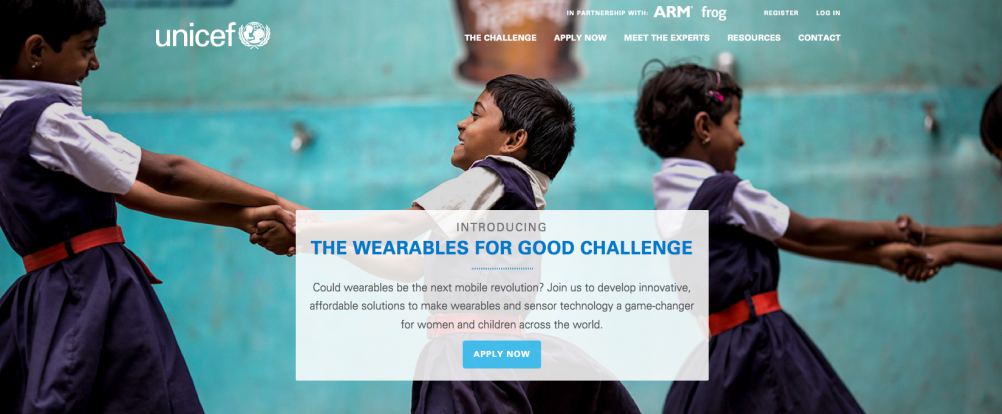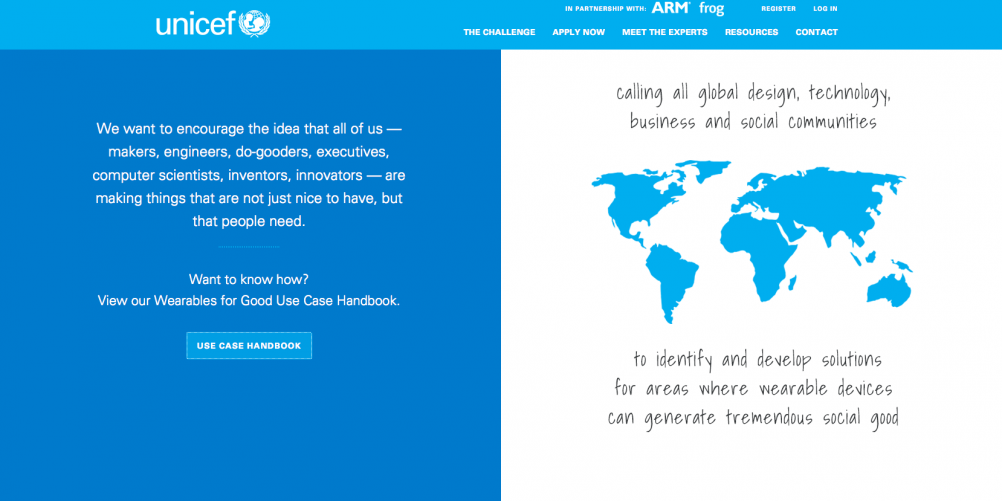Unicef announces “Wearables for Good” design challenge
Unicef has joined forces with design consultancy Frog and tech company Arm to lay down the design challenge of solving a global health problem with wearable or sensor technology.

Children’s charity Unicef, tech group Arm and product design consultancy Frog have launched a wearable tech design challenge in a bid to find solutions to major health problems affecting children in developing countries.
The three partners want to “redefine the notion of wearables” and will back designs which offer cost effective, efficient, and sustainable solutions to a “pressing maternal, newborn or child health problem.”
Wearables for Good will offer social, technological and product design expertise from the partner organisations. Two winners will each receive $15,000 (£9,700) in funding and there will be incubation and mentorship support from both Arm and Frog.
One of the broad goals of the challenge is helping Unicef offer better help to children coping with the effects of mass urbanisation and increased social and economic divides.

More information can be found on this site which mentions developers, designers, community partners and problem-solvers as the kinds of people that the challenge will appeal to.
A Use Case Handbook has been developed to shoe the kind of challenges that need to be addressed as well as principles for good design.
Frog executive creative director Denise Gershbein says that most wearable tech products focus on fitness or the individual but the design challenge presents an opportunity to make a social impact in emerging markets.
“With the Wearables for Good challenge we hope to foster dialogue among new partners and increase cross-discipline innovation,” says Gershbein.
In addition to the challenge Arm is working with Unicef and its network of Innovation Labs to scale up pilot projects which could be used at a national level and delivered to new places.
In the longer term Unicef and Arm will identify, evaluate and promote market opportunities in developing countries before outlining the business case for investment in areas such as mobile financial services, transportation, education and wearable and sensor technology.
It is hoped that this will lead to globally co-created and scalable technologies that will attract commercial investment.
Arm chief executive Simon Segars says “Technology should be used to create opportunity for all; improving child health, education and prospects, and access to it should not be governed by economic status or geography.
“We have spent 25 years enabling life-changing technologies and together with UNICEF’s innovation experts we believe this partnership can deliver a positive social impact for children all-around the world.”
-
Post a comment




